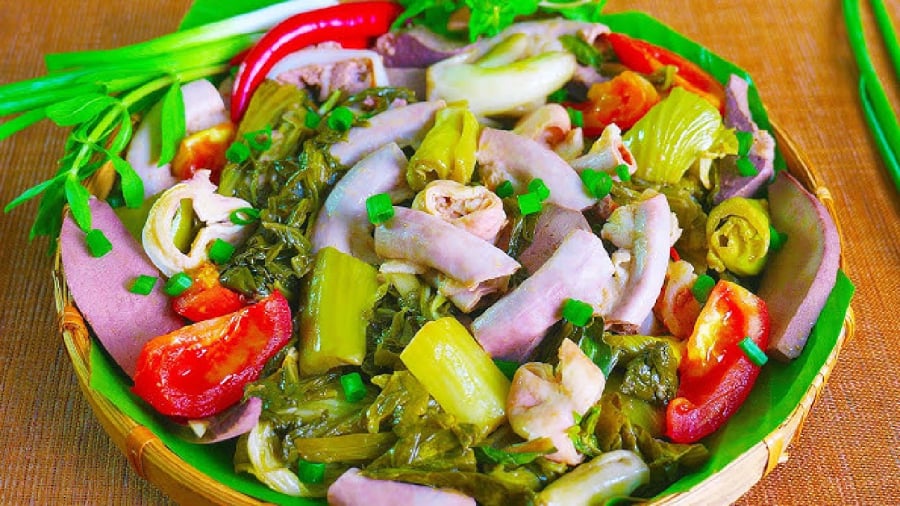Consuming foods high in cholesterol increases the risk of dangerous diseases
High blood fat is one of the causes leading to serious diseases such as heart attack and stroke, shortening human life expectancy. In 2022, the National Institute of Nutrition reported that 29% of adults in Vietnam had problems with dyslipidemia. Of these, 44% of adults in urban areas suffered from dyslipidemia, with the highest rate occurring in the 35-44 age group.
An unhealthy diet is the main cause of dyslipidemia. A diet high in fat and cholesterol can easily lead to high blood fat levels, accumulation in the body, and increased risk of disease.
Cholesterol is an essential component for cells in the human body. However, consuming too much cholesterol and excess fat will accumulate in the arteries. This can lead to other dangerous problems such as atherosclerosis, myocardial infarction, and stroke.
Many people believe that only red meat and pork fat have high cholesterol, increasing the risk of high blood fat. In fact, there is one dish that contains more cholesterol than these foods, and many people are unaware of it.
Dish with higher cholesterol than pork fat
The dish mentioned here, which has higher cholesterol than pork fat, is pork offal. For many Vietnamese people, pork offal is a rustic yet delicious dish.
However, according to Vietnamnet, PGS.TS Nguyen Thi Lam, former Vice Director of the National Institute of Nutrition, said that 100 grams of pork offal can provide about 400 mg of cholesterol. In contrast, the cholesterol content in pork fat is only about 95 mg. Thus, it can be seen that pork offal has four times more cholesterol than pork fat.

According to the National Institute of Nutrition, a person needs an average of less than 300 mg of cholesterol per day. If you eat 100 grams of pork offal, the cholesterol intake exceeds the recommended level (not including cholesterol from other foods).
Additionally, when consuming pork offal, we may encounter other issues. Pork offal contains high levels of purines, which can increase the risk of gout and make the condition more severe and challenging to control.
Pork offal is also a haven for various bacteria, parasites, and other harmful substances. Eating pork offal of unknown origin or improperly prepared can cause digestive problems, food poisoning, and parasitic infections.

Some precautions when eating pork offal
Therefore, when consuming pork offal, it is essential to choose a reputable source that ensures food safety and hygiene. Pork offal should be properly handled and thoroughly cooked before consumption. Only high temperatures can kill the parasites hiding in the offal.
Since pork offal is high in cholesterol, it should be eaten only once a week and in moderate portions of 70-80 grams. People with underlying conditions such as high cholesterol, dyslipidemia, diabetes, high blood pressure, gout, obesity, or elderly individuals should limit their consumption of pork offal. This food can cause their health conditions to spiral out of control if eaten in excess, increasing the risk of complications and severely impacting their well-being.






























